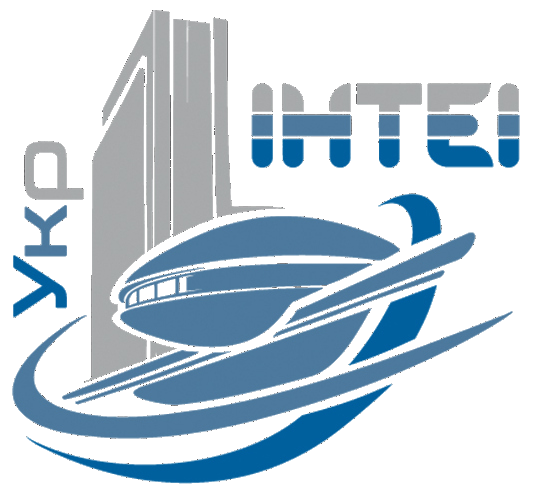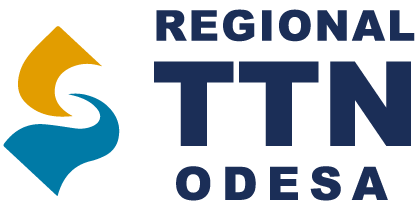Incubator, accelerator, studio. What is the difference and where to go for a startup
 Igor Sokolov, partner of Pragmatech Ventures and head of the Pragmatech Studio startup studio, in a column for AIN.UA spoke about the features of different ecosystems for startups (incubators, accelerators, studios), their differences and tasks.
Igor Sokolov, partner of Pragmatech Ventures and head of the Pragmatech Studio startup studio, in a column for AIN.UA spoke about the features of different ecosystems for startups (incubators, accelerators, studios), their differences and tasks.
Thinking about starting a startup? Then you will need to collect at least a few elements from the following list: team, idea, start-up capital, experienced mentor, business model, market expertise. Don’t worry ahead of time – a lot of this can be found in special startup ecosystems: incubators, startup studios, accelerators. Let’s see how they differ from each other.
Shortly
- Incubators will help entrepreneurs at an early stage – go from idea to proof of concept.
- Accelerators are focused on teams with a working product (prototype) and help them scale.
- Startup studios create businesses from scratch, mainly using internal resources, accumulated experience and providing maximum support to the entrepreneur.
And now in more detail.
Incubators: “business greenhouses”
What they do
The focus of startup incubators is to make a project essentially from scratch. These organizations help founders build a team and find their first clients. As a rule, incubators have their own specific niche – for example, marketplaces, hardware, B2B Enterprise solutions, and so on.
To put it simply, this is a greenhouse – favorable conditions for aspiring entrepreneurs. Incubators do a lot to ensure that the team does not give up ahead of time and create a solution that can be shown to clients:
- teach the administrative side of the business;
- provide mentors for marketing, sales, product development;
- if necessary, provide a room and so on.
What over time
The incubator’s task is to help a startup go from idea to MVP, or even to readiness to enter the market, so it is difficult to predict the exact timing. Basically, they work according to a fairly flexible scheme for three to six months, in exceptional cases even longer.
Therefore, incubators expect in advance both several iterations in the development of the project, and possible sharp turns.
What about finances
Incubators do not always provide capital to founders – and when this happens, funds are often transferred “in batches”. Many organizations of this type ask the team to show meaningful achievements at different stages – and the progress is “rewarded” with funding. Support in incubators is provided for a share in the project.
However, there are incubators that do not take a share in the project for services – most often these are government or university programs.
The logic of funding is to help startups not make the mistakes of newbies and thereby increase the chances of business success at the very beginning of the journey.
Who should go: Aspiring entrepreneurs with an idea but no experience.
Accelerators: “startup university”
What they do
The goal of the accelerator is to accelerate the development of startups. There is no longer a “greenhouse” approach of the incubator:
- it prefers to take projects with prototype solutions or finished products here;
- often there is a rather tough selection – in the accelerator, as in the university, you still need to “enter”;
- accelerators prepare startups for institutional capital, helping to form a valid and scalable business model;
- it’s not about the first steps, but about preparing for scaling.
A good accelerator also becomes a platform for building relationships between investors and founders. On the basis of such acquaintances, synergy arises for further development.
What over time
In accelerators, work is carried out according to programs with clearly defined deadlines: in them, startups receive the support of mentors and experts to reach the level of a full-fledged product ready for the market. It is about marketing and sales as well as legal issues. As a rule, such programs last from several months to six months.
The demo day becomes the final of the acceleration. It is where startups “graduates” present their projects to investors. Essentially, this is the start of a fundraising campaign.
What about finances
There are two main accelerator models on the market: equity and non-equity. While the former select companies for participation and invest in them (a typical check is $ 50,000-100,000) in exchange for a share (usually up to 10%), the latter do not give money, but they do not require a share in the project either. Moreover, participation in a non-equity accelerator is usually paid if it is not funded by not-for-profit organizations (for example, educational institutions) or the state.
Corporate accelerators should be mentioned separately – they select projects that have synergies with large companies, which pay for the process.
Who should go: those who already have a team, a prototype is ready and it’s time to take a leap.
Startup studio: “business factory”
What they do
While incubators and accelerators are relatively well known in the Ukrainian market, the situation is different with start-up studios. This format is still little known to local entrepreneurs – and we at Pragmatech Studio are going to change that.
The task of a startup studio is to gather a team of entrepreneurs and create a business with them from scratch:
- the studio constantly generates and validates business ideas;
- people from the outside can come without an idea – they will be offered to implement one of the ones created by the studio. Applicants are expected to have an entrepreneurial spirit, a desire to build and develop a business;
- studio expertise helps to minimize risks for a startup and increase its chances of success;
- the studio team, together with entrepreneurs, develops the idea into a viable business: from providing premises to mentoring and operational support.
The studios combine a number of advantages of incubators and accelerators, while being ready to invest more in the development of the project. It should be borne in mind that in this case, the studios receive a larger share in the business than when developing a project in an incubator or accelerator.
Simply put, if you’ve come up with a new Netflix or TikTok, you’re in an incubator. If you are the next Elon Musk and you are missing the point of applying your potential: a startup studio is waiting for you. In the person of the latter, entrepreneurs get a partner who provides support at all stages of the company’s development.
In addition, startup studios are often associated with venture capital (including Pragmatech Studio), making it easier for founders to get started. All the time that will not be spent on fundraising can be spent on creating a better product.
What over time
There are no hard limitations of the accelerator here: the studios are aimed at creating and developing a business. Different studios have different practices, some provide support to the project up to the seed stage, others accompany it until the exit.
Pragmatech Studio is not aimed at exiting projects in the future: we support new business at all stages.
What about finances
Incubators and accelerators “grow” ready-made projects. Startup studios focus on other capital – human capital. They generate ideas and create startups based on them, find professionals from outside who become co-founders of projects. Entrepreneurs are engaged in product development with the support (including financial) of the studio team. Pragmatech Studio works according to this principle.
Who should go: startups with an entrepreneurial spirit and a desire to grow and develop a business, both with and without a ready-made idea.
Posted by Igor Sokolov, partner at Pragmatech Ventures and head of the Pragmatech Studio startup
Source: ain.ua










